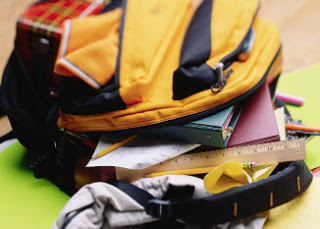
- Engage them with shape sorters and other toys that teach them to put similar items together.
- Enlist their help in simple household chores, such as putting away their dishes or placing dirty clothes in the hamper.
- At the beginning of the day, discuss with your child the day’s coming events. Review what you did that day at bedtime.
- Show your pre-school aged children how to properly store worksheets in folders and other items in their backpacks.
- Continue to give them chores that require sorting skills, such as unloading the dishwasher or pairing freshly washed socks.
- For children who can read, post a list of daily or weekly chores and allow them to check off completed tasks.
- Post a similar list of items your children need to bring to school and have them check off each item they place in their backpacks.
- Allow them to play educational computer games that require memory and matching skills.
- Take them shopping for organizational supplies, such as binders, folders and assignment notebooks. Let your child choose the cover design.
- Each day, after school, review the assignments written in their notebook or planner. Encourage them to check off finished assignments
- Purchase a planner that includes monthly and daily calendar pages, pockets and a place to record other notes.
- For long-term papers and research projects, help your child break the assignment into smaller tasks and make short-term deadlines for each task.
- Model organizational skills by keeping your children in the loop with special family activities and other scheduled events. Post a calendar in the kitchen or another communal area for all family members to make notes and review schedules.
Jennie is a child counselor residing in Chicago IL. In addition to working with children Jennie owns and manages several self storage units in Chicago. When recommending storage facilities to friends and family in San Bernardino CA, she recommends Extra Space Storage in San Bernardino




